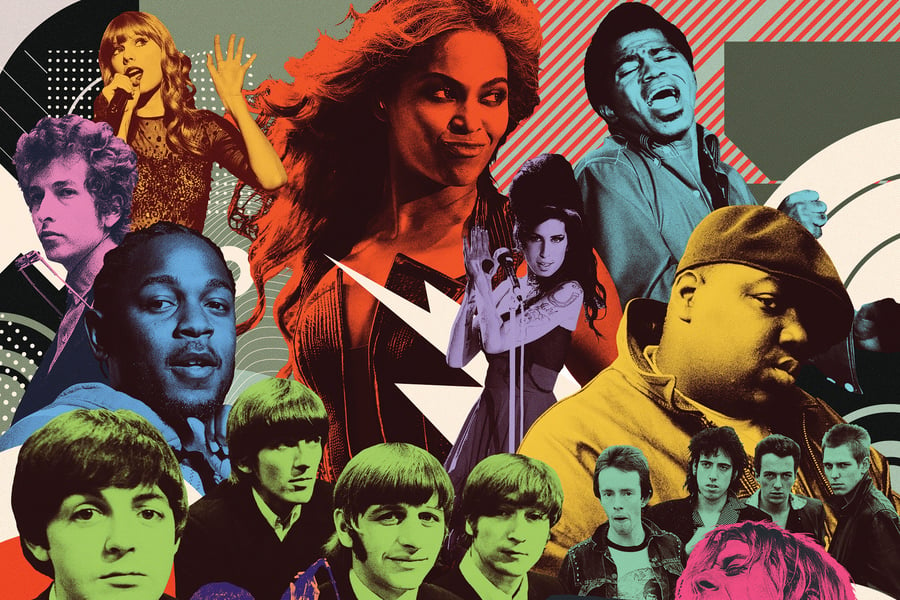The 500 Greatest Albums of All Time
The classics are still the classics, but the canon keeps getting bigger and better

Rolling Stone’s list of the 500 Greatest Albums of All Time was originally published in 2003, with a slight update in 2012. Over the years, it’s been the most widely read — and argued over — feature in the history of the magazine (last year, the RS 500 got over 63 million views on the site). But no list is definitive — tastes change, new genres emerge, the history of music keeps being rewritten. So we decided to remake our greatest albums list from scratch. To do so, we received and tabulated Top 50 Albums lists from more than 300 artists, producers, critics, and music-industry figures (from radio programmers to label heads, like Atlantic Records CEO Craig Kallman). The electorate includes Beyoncé, Taylor Swift, and Billie Eilish; rising artists like H.E.R., Tierra Whack, and Lindsey Jordan of Snail Mail; as well as veteran musicians, such as Adam Clayton and the Edge of U2, Raekwon of the Wu-Tang Clan, Gene Simmons, and Stevie Nicks.
How We Made the List and Who Voted
When we first did the RS 500 in 2003, people were talking about the “death of the album.” The album —and especially the album release — is more relevant than ever. (As in 2003, we allowed votes for compilations and greatest-hits albums, mainly because a well-made compilation can be just as coherent and significant as an LP, because compilations helped shaped music history, and because many hugely important artists recorded their best work before the album had arrived as a prominent format.)
Of course, it could still be argued that embarking on a project like this is increasingly difficult in an era of streaming and fragmented taste. But that was part of what made rebooting the RS 500 fascinating and fun; 86 of the albums on the list are from this century, and 154 are new additions that weren’t on the 2003 or 2012 versions. The classics are still the classics, but the canon keeps getting bigger and better.
Written By
Jonathan Bernstein, Pat Blashill, Jon Blistein, Nathan Brackett, David Browne, Anthony DeCurtis, Matt Diehl, Jon Dolan, Chuck Eddy, Ben Edmonds, Gavin Edwards, Jenny Eliscu, Brenna Ehrlrich, Suzy Exposito, David Fricke, Elisa Gardner, Holly George-Warren, Andy Greene, Kory Grow, Will Hermes, Brian Hiatt, Christian Hoard, Charles Holmes, Mark Kemp, Greg Kot, Elias Leight, Joe Levy, Angie Martoccio, David McGee, Chris Molanphy, Tom Moon, Jason Newman, Rob O’Connor, Park Puterbaugh, Jody Rosen, Austin Scaggs, Karen Schoemer, Bud Scoppa, Claire Shaffer, Rob Sheffield, Hank Shteamer, Brittany Spanos, Rob Tannenbaum, David Thigpen, Simon Vozick-Levinson, Barry Walters, Jonah Weiner
From Rolling Stone US























































































